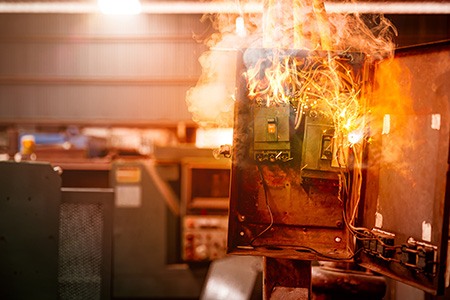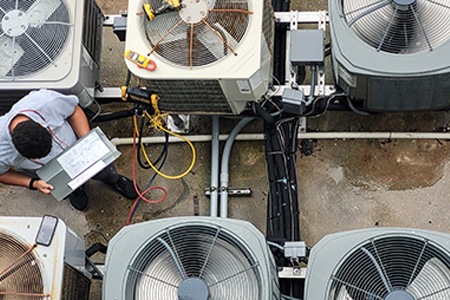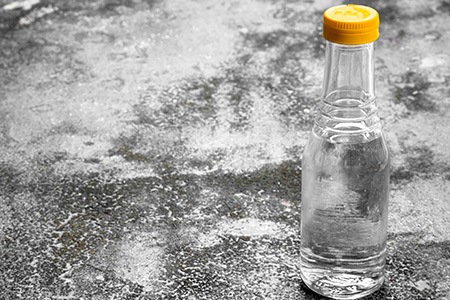Burning Plastic Smell In Your House? Get Rid of the Hazard Now
Author: Anne Cowart | Editor: Omar Alonso
Review & Research: Jen Worst & Chris Miller

What could be more alarming than detecting the pungent scent of burning plastic within the confines of your home? A burning plastic smell in your house is horrid. Not only is the acrid odor unpleasant, but it also serves as a warning sign of potential lurking dangers. From overheated appliances to electrical fires, the origins of this smell are diverse and numerous.
In this article, we'll delve into the various sources of this troubling burning plastic aroma within your household, examine its associated risks and hazards, and provide practical guidelines for effectively addressing it. So let's get started!
Causes of a Burning Plastic Smell in Your House
A melting plastic smell in your house can be attributed to various factors, from overheated electrical appliances to malfunctioning HVAC systems. Below, we explore the potential causes of the burning plastic smell in your home:
Overheated Electrical Appliances

Overheated electrical appliances are frequently identified as a primary cause of the burning plastic smell in homes. This occurs when devices are left plugged in or switched on for extended periods, resulting in excessive heat buildup that can scorch plastic components and emit an unpleasant odor.
However, beyond the offensive smell, overheating appliances pose several safety hazards. Faulty electrical systems, loose or frayed wires, and overloaded circuits commonly contribute to these appliance-related issues.
It's important to note that such problems can escalate to more severe consequences, including electrical fires or substantial damage to your electronics. So don't leave that lava lamp on forever.
Kitchen Accidents
The burning plastic smell in the house is often caused by kitchen accidents, which can occur when prohibited materials are placed on hot surfaces or in ovens and microwaves. These incidents can lead to the melting of plastic cooking utensils, containers, or packaging that come into direct contact with heating elements.
Another potential source of the smell from kitchen accidents is when plastics are mistakenly mixed with other combustibles in a fireplace or chimney. Not only can these occurrences release harmful toxins, but they can also put your household at risk for more severe consequences, such as electrical fires caused by damaged wiring from overheated appliances.
HVAC System Malfunction

An HVAC system malfunction is a common culprit behind a burning plastic smell in your home. Since heating, ventilation, and air conditioning systems incorporate various electrical components and wiring, overheating of these parts can emit a distinct odor resembling burnt wires or melting plastic.
If you have a gas furnace in your home, it's important to note that the initial use of the furnace during the fall season may also produce a similar scent. However, if the smell persists beyond the first few uses, it could indicate more significant issues within your HVAC system, such as a gas leak, which demands immediate attention from professional services.
Whenever you detect an electrical or gas-related odor emanating from your HVAC unit, it’s crucial to promptly switch off the system and seek expert assistance for a thorough inspection and necessary repairs. Ignoring such issues could potentially lead to further damage or safety hazards.
Electrical Fires
Electrical fires are a severe concern for any household, as they pose significant threats to both property and personal safety. Overheating wires are the most frequent cause of such fires, as the insulation surrounding them can deteriorate, potentially leading to a fire outbreak. These electrical fires often release an acrid odor that’s often likened to the scent of burning plastic or even fish.
To prevent electrical fires, it’s crucial to adopt proactive measures, including regular inspections of wiring, appliances, and power outlets to identify any signs of wear or damage. By addressing potential issues promptly, you can mitigate the risk of electrical fires and ensure the safety of your home and loved ones.
Risks & Hazards Associated With a Burning Plastic Smell

The risks and hazards of burning plastic cannot be underestimated when it comes to the burning plastic smell in your house. The consequences can be severe, from short-term health problems caused by smoke and chemical fumes to long-term exposure risks of toxic carcinogens released from burning plastic. Here's risks and hazards associated with burning plastic smell:
Release of Toxic Carcinogens From Burning Plastic
Burning plastic poses a significant health hazard as it releases a range of harmful toxins, including dioxins, furans, mercury, polychlorinated biphenyls (PCBs), benzo(a)pyrene (BAP), and polyaromatic hydrocarbons (PAHs). These chemicals can harm human health, leading to respiratory illnesses, headaches, nausea, and even cancer.
The distinct smell of burning plastic often indicates the release of these toxic carcinogens, making it particularly concerning when detected indoors. It’s important to note that burning polyurethane can emit hydrogen cyanide, a hazardous substance with severe consequences.
Short-Term Health Issues Caused By Smoke & Chemical Fumes
Exposure to smoke and chemical fumes emanating from burning plastic can result in various short-term health issues. These include irritations of the nose, throat, and skin and neurological symptoms such as dizziness and headaches. In some instances, these odors can cause a burning sensation that leads to coughing, wheezing, or other respiratory difficulties.
The severity of these symptoms depends on the concentration and duration of exposure. It’s important to note that even brief exposure to strong odors can be harmful and should be avoided whenever possible.
Long-Term Exposure Risks
Prolonged exposure to the toxic chemicals released from burning plastic poses significant long-term health risks. Chemicals such as dioxins, furans, and polychlorinated biphenyls (PCBs) can accumulate in our bodies over time, and have detrimental effects on our immune system reproductive organs, and may even lead to developmental issues.
Moreover, these chemicals are known carcinogens, increasing the risk of cancer development. Extended inhalation of burning plastic fumes also heightens the likelihood of respiratory illnesses like asthma and bronchitis.
How to Get Rid of a Burning Plastic Smell In Your House

To eliminate the burning plastic smell in your house, it's important to identify the source of the odor and ventilate the space immediately. Here’s what you can do to get rid of burning plastic smell in house:
Identify the Source of the Smell
To address a plastic burning smell in your house, the first step is to identify its source. Various factors can contribute to this smell, such as overheating appliances, kitchen accidents, HVAC system malfunctions, or even electrical fires.
If you cannot immediately determine the source, turning off and unplugging any potentially affected appliances is crucial. Additionally, consider inspecting your furnace or arranging an HVAC inspection if you suspect the issue originates from there.
Ventilate the Space Immediately
When you detect a burnt plastic smell in your house, promptly initiating ventilation is of utmost importance. This entails opening all doors and windows to facilitate fresh air circulation throughout the affected rooms. By doing so, you can effectively disperse any harmful fumes or smoke that may be present, particularly in the case of a potential fire.
If available, consider using fans or air purifiers to enhance indoor air quality further. Delaying ventilation allows for the accumulation of toxic chemicals in your home, thereby increasing the risk of both short-term health issues and long-term exposure hazards.
Additionally, it’s essential to identify the source of the smell before undertaking any cleanup efforts, as certain causes may necessitate professional assistance.
Turn Off & Unplug Affected Appliances
If you detect a burning plastic smell in your house, the initial step is to turn off and unplug any affected appliances promptly. This precautionary measure helps prevent further damage or fires from overheating electrical devices.
Furthermore, cutting off the source of the odor facilitates the identification of its origin. It’s important to note that if you suspect an electrical appliance is responsible for the smell, it’s advisable not to attempt fixing it yourself. Instead, it’s recommended to seek the assistance of a qualified electrician.
For example, leaving an overheated iron plugged in for an extended period or forgetting about food in the oven can generate heat that melts nearby materials and emits toxic smoke containing harmful carcinogens when burned.
Use Natural Odor Absorbers

You can utilize natural odor absorbers to eliminate the house smells like burning plastic. These methods harness the power of natural substances to neutralize the odor and freshen up your space.
One option is to place bowls filled with white vinegar around the affected area. Vinegar is renowned for its odor-absorbing properties. Leave the bowls overnight or for a few days, allowing the vinegar to work its magic.
Another natural absorber is baking soda. Sprinkle it generously on carpets, upholstery, or any surfaces that may have absorbed the smell. Let it sit for a few hours or overnight, then vacuum it up.
Deal With That Burning Plastic Smell in Your House!
Why does my house smell like burning plastic? To conclude, it’s crucial not to ignore the presence of a burning plastic smell in your home due to its potential hazards to your health. Identifying the source of the odor and taking immediate action to prevent any dangers is of utmost importance.
Keep in mind that overheated electrical appliances, kitchen accidents, HVAC system malfunctions, and electrical fires are among the common culprits behind this smell. To maintain a safe household, prioritize hygiene by regularly cleaning or servicing your HVAC systems.
Additionally, be vigilant about the condition of heating equipment and inspect cords and plugs for wear and tear, as frayed wires or melted outlets can lead to disastrous consequences if left unattended. By staying proactive and promptly addressing the burning plastic smell in your house, you can ensure the well-being of yourself and your home.




